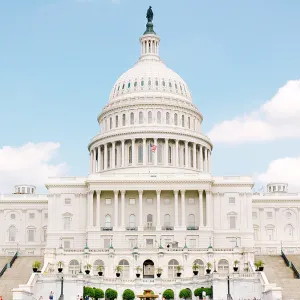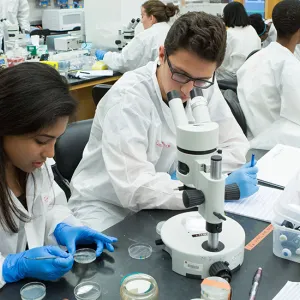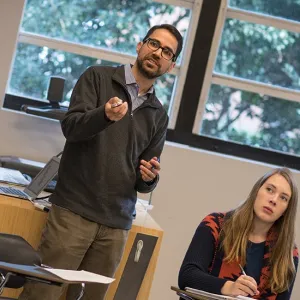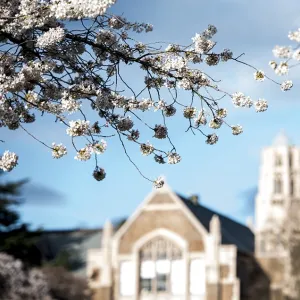Trump's executive order restricting U.S. entry for certain immigrants sends chilling message to potential students and scholars.
By Mary Sue Coleman and David Leebron
It is hard to overestimate the unease on America's university campuses about President Donald Trump's executive order barring the entry of people from seven countries for 90 days. Although the courts have temporarily stayed its enforcement, the order remains in effect in the minds of thousands of affected students and faculty who know their protection could soon end.
And campus concerns don't touch only those personally subject to the order. This directive strikes at the heart of fundamental principles that help make our universities the envy of the world.
As the president and board chair of the Association of American Universities (AAU) - which includes 60 of the country's leading public and private research universities - we place the utmost importance on our nation's security and on cooperating with the federal government's efforts to keep out those who would harm us. Indeed, AAU has worked closely with the Department of Homeland Security to ensure that the government can protect the country - and our campuses - from such individuals.
AAU universities collectively educate and employ more than 300,000 international students and nearly 75,000 faculty members from other countries. Rice University alone hosts more than 2,500 international students and scholars. Our universities and our society have a substantial interest in the movement of the world's best students, scientists and scholars from their home countries to our campuses. They bring their talents, their ideas, their different experiences and a deep enthusiasm for the intellectual opportunities available here. The resulting collaborations lead to scientific and technological advances, economic growth and jobs, fuller educational experiences for American students and, when graduates return home, foreign leaders who have experienced first-hand the deeply ingrained American values of democracy, free speech and inquiry, and opportunity for all.
Without these students, teachers, and researchers, our global leadership in the second half of the 20th century and beyond would have been impossible.
Examples of these benefits abound:
Tim Berners-Lee, the English founder of the World Wide Web, refined that technology at MIT and is still a leading computer scientist there.
Juan Manuel Santos, the president of Colombia and 2016 Nobel Peace Prize winner, holds degrees from the University of Kansas and Harvard. (2016 was a banner Nobel year for the United States, with six awardees in the sciences - all immigrants.)
And then there is Steve Jobs, who would not have been here to create the iPhone had his biological father, Abdul Fattah Jandali, been denied entry to the United States from his native Syria to study at the University of Wisconsin-Madison.
The administration's executive order threatens to undermine America's status as the destination of choice for this kind of top international talent. Students and faculty from the seven designated countries cannot visit home or travel internationally for academic conferences or routine scientific collaboration, out of fear they will not be allowed to return.
But that is just the tip of the iceberg. Thousands of potential students, researchers and scholars from overseas are now asking themselves: Am I still welcome in the United States?
This order sent a message: The United States is pulling in the welcome mat.
And whom does that message embolden? Our competitors - countries working hard to displace the United States as the global leader in science, innovation and higher education.
Alarm about that message has motivated many other sectors of American society - major businesses, bipartisan former national security officials, hospital and medical associations, and religious and civil rights organizations - to speak out about the harm wrought by the executive order.
AAU recently joined them in filing an amicus curiae brief in one of the cases arising out of the executive order, in which we detailed the benefits of international exchange and the order's direct impact on specific students and faculty. The brief highlights several of the remarkable faculty on AAU campuses who are citizens of the seven countries and thus affected by the order, including:
a Syrian trauma surgeon who coordinated nongovernmental organization support for medical care to civil war casualties and is now assessing the availability and quality of trauma care at Syrian hospitals;
a Sudanese medical professor (and practicing physician at a local hospital) who has been honored for her work on female genital cutting; and
an Iranian mathematician who was the first woman to win the Fields Prize, her discipline's most prestigious prize.
Losing out on individuals like these as teachers and innovators would be deeply detrimental to American higher education and to our country. If President Trump wishes to undo the damage done to American higher education and global competitiveness by this executive order, he should rescind it and work to ensure that our vigorous efforts to protect our homeland also protect the free flow of ideas and people that has made and continues to make our country great.
Coleman is president of the Association of American Universities. Leebron is president of Rice University and board chair of the Association of American Universities.



